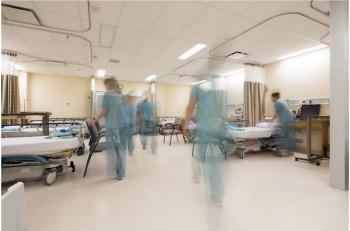
AHS: Triple Therapy Synergy for Frequent Severe Migraine
LOS ANGELES - If all else fails individually, throw the kitchen sink at some patients with migraine, recommends an Ohio investigator.
LOS ANGELES, June 28 - If all else fails individually, try throwing the kitchen sink at migraine, recommends an Ohio investigator.
The combination of behavioral migraine management, preventive medication, and optimal acute therapy appears to provide a superior reduction in migraine activity measures, functioning, and quality of life compared with any one alone, according to a study presented at the American Headache Society meeting here.
For these patients, "effective migraine management may require three components: a tailored acute therapy, preventive medication and behavioral migraine management to get the optimal results," said Kenneth Holroyd, Ph.D., a professor of health psychology at Ohio University in Athens, Ohio, in an oral presentation.
The study included patients with frequent, severe migraines that fell under the International Headache Society (IHS) for migraine with or without aura (IHS 1.1 and 1.2 criteria), but excluded those with headaches induced by chronic substance abuse (IHS 8.2). These patients averaged 5.5 migraines a month for mean of 8.5 migraine days a month. The average duration of chronic headaches was 15 years.
The 232 individuals were randomized to optimal acute therapy in combination with one of four arms: placebo, preventive medication, behavioral migraine management, or behavioral migraine management plus preventive medication. These regimens were followed for four months and then patients were evaluated five times over the course of a year.
Optimal acute therapy included patient education on how to identify cues for early treatment and accurately assess treatment effects, as well as adjustment of medication, dose and route of administration of triptan and other acute medications.
Preventive medication included Inderal LA (propranolol LA) at doses up to 240 mg per day as tolerated and Corgard (nadolol) at doses up to 120 mg per day as tolerated.
Behavioral migraine management included four office sessions to train patients on relaxation, warning signs and triggers of migraine, how to use migraine medication effectively, stress management, and formation of a management plan. Patients were given audio tapes and a workbook as 'homework'.
All four arms were effective in reducing the frequency of migraines (p<0.001). However, the combination arm showed the largest decrease from an average of 5.5 per month down to about two a month, which was about 0.75 fewer episodes than in any of the other arms (p<0.01).
The percent of patients who were clinically improved by more than 50% was 80% for the combination arm, about 49% for the behavioral migraine management arm, about 47% in the preventive medicine group, and 40% in the placebo arm.
Interestingly, the two arms containing a behavioral migraine management component showed more improvement in headache disability inventory scores than those that did not.
"It does look like a synergistic effect," he said, though he noted that optimal acute therapy by itself in this study "yielded clinically significant effects equal to preventive medication effects in migraine preventive medication trials."
Newsletter
Enhance your clinical practice with the Patient Care newsletter, offering the latest evidence-based guidelines, diagnostic insights, and treatment strategies for primary care physicians.

































































































































